Imagine a world where empty plastic bottles and old newspapers help create a brighter future instead of piling up in landfills. Believe it or not, everyone faces this choice every day, a choice to either recycle and make a difference or add to the mountains of waste.
While thinking about all the solid waste you make each day can be a bit overwhelming, fear not! Each recycling bin offers a beacon of hope for a cleaner, greener Earth. Recycling isn't just a good habit; it's a powerful tool in the fight to handle the trash that every city, town, and home creates.
And here's a bit of good news: by learning a few recycling facts, everyone can join in on the effort to manage waste better. It starts in your own home. Separating paper, plastic, and glass from their recycling bins can start a journey of transformation, turning what was once trash into something new and useful.
Why is recycling important?
Every day, you make a choice with simple actions, like what to do with a plastic bottle after enjoying a drink. This bottle's story doesn't have to end in a pile of trash. Instead, it can begin a new chapter as a recycled hero on a journey toward renewal.
- Recycling plastic saves natural resources. Every time a plastic bottle is recycled, we reduce the need to extract raw materials for new products.
- When manufacturers use recycled plastic instead of producing new materials, they consume fewer resources.
- Recycling means we don’t have to dig up or cut down more of the earth’s treasures to make new things. It's like telling the planet, "Don't worry, we can reuse what we’ve already got!"
- When you recycle, those plastic bottles get a new life, they might turn into park benches, new bottles, or even cool t-shirts.
- It saves trees, keeps the ground safe, and means there's less digging and chopping in the wild.
- Every time you recycle, you're actually sending a message saying, "We care about our forests, our mountains, and our oceans."
- It's about looking after nature by reusing what you have, which is a smart move for the planet, and for you too!
Impact Of Recycling On Energy

Each plastic bottle you encounter in your daily life holds a secret superpower, the power to conserve energy. It might seem like a small gesture, but when you take that empty plastic bottle and place it in the recycling bin, you're taking a step that echoes positively throughout the environment.
- Here's a fascinating fact: recycling one plastic bottle conserves enough energy to run a 60-watt bulb for six hours.
- If every household recycles just one plastic bottle each week, the accumulated energy savings could power lots of bulbs.
- This isn't just about lightening up the house; it's about the bigger picture, where saved energy translates to less reliance on the earth's old buried treasures like oil and gas.
- This helps make the air cleaner and keeps the earth cooler, making your mark on the world a bit gentler.
The Cycle Of Renewal
Here's a nifty fact; your plastic bottle has more potential than you might think. It doesn't have to end up as just another piece of trash. With the wonders of recycling, that bottle could transform into something unexpected.
- It could become part of a warm sweater to snuggle in, a piece of stylish furniture for your home, or take on a new life as another bottle.
- By choosing to recycle, we don't have to keep making everything from scratch with new resources from our planet. This helps keep our earth lush and thriving.
- When you're done with your last sip, pause for a moment, and consider the adventure ahead for that bottle. Does it get tossed aside, lost in a sea of garbage? Or does it rise to fame as a recycled gem? Your choice has power; it can lead to a greener world. Remember, even the smallest decision can have a ripple effect on the health of our planet!
Managing Solid Waste

All over the world, towns and cities have a huge job handling all the trash humans make, from residential paper waste to commercial rubbish. This isn't just the bits of paper and packaging from things you buy for your homes, but also the waste from stores and offices. All of this has to be taken care of to keep the streets clean and the earth happy.
- The United States alone generates over 250 million tons (226,796,185,000 kg) of trash annually. To picture it, imagine a line of garbage trucks so long that it could stretch from one coast to the other.
- But here's a neat trick, if we all start recycling, we can make that big pile much, much smaller. Recycling is like a superpower for cleaning up our planet. It helps reuse things and keeps our land and water cleaner.
- When we recycle paper, we're actually doing a whole bunch of good things for the air and water around us. Making fresh paper from trees and other new stuff can get pretty messy for the environment.
- We cut down on air pollution by about 74%, which is like swapping a big, dirty truck for a small, clean bike. Plus, we save water too, about half as much as normal. That means less waste and more fresh air and water for us all to enjoy.
- Think about an aluminum can, like the ones that hold soda. Every time we recycle one instead of tossing it in the trash, we're saving a bunch of energy.
- Recycling metal like aluminum is super smart because it uses far less energy than making a can from scratch. Plus, aluminum can be recycled over and over without losing its quality, which is like a never-ending cycle of goodness!
The Impact Of Food Waste
Food waste is one of the biggest yet often forgotten parts of what you throw away. It’s not just about leftovers or scraps that we forget in the back of the fridge. It also includes all the extra bits that get tossed out during cooking or the fruit and veggies that go bad before we eat them.
- The average person generates a significant amount of food waste, which, when decomposed, contributes to carbon dioxide emissions, which get into the air and can make our planet warmer than it should be.
- Diverting food waste from landfills saves landfill space. It creates more room in our landfills because they aren't getting filled up with old leftovers and spoiled groceries.
- It reduces methane production, a potent greenhouse gas that makes the earth too warm.
Raw Materials And Recycled Products

Recycling isn’t just eco-friendly; it can also be economically wise by turning used products into valuable raw materials.
- Recycled glass can become new bottles and jars, while recycled paper is transformed into new cardboard and paper products.
- They can become part of building materials, new packaging, or even bicycles and cars!
- Companies can save money on production costs. Plus, recycling creates jobs for people collecting, sorting, and processing all the recycled goods.
- Recycling isn't just about keeping the earth green. It's also about saving money, that is. It's a win-win for the environment and the economy.
Recycling Bins: Your Gateway To Greener Living
Recycling bins aren't just containers; they're symbols of your commitment to the environment; daily reminders that every one of us has a part to play in cutting down on waste. Every time you toss a paper or a can into a recycling bin, you're taking a small but significant step towards a cleaner planet.
- Placing recyclable items like plastic containers and paper into recycling bins can prevent them from contributing to the American waste stream.
- By making recycling a habit, you not only save energy but can inspire your community to follow suit.
- Not only do these bins help us sort and save recyclables from ending up in landfills, but they also encourage us to think about the impact of what we throw away.
- These bins guide us towards greener habits and a more sustainable future.
FAQs
 Shutterstock
Shutterstock
Why is recycling important for waste management?
Recycling plays a key role in waste management by reducing the amount of garbage that ends up in landfills or incinerators. When we recycle, we give materials like paper, plastic, and glass a second life, which can then be used to create new products without needing new raw materials.
How does recycling save energy?
Recycling saves energy by cutting down the need to extract, transport, and process raw materials. For example, recycling aluminum cans uses 95% less energy compared to making them from raw bauxite ore.
The energy saved from recycling one glass bottle can run a 100-watt light bulb for 4 hours. It also causes 20% less air pollution and 50% less water pollution than when a new bottle is made from raw materials.
Can recycling help reduce greenhouse gases?
Absolutely! By recycling, we avoid the energy-intensive process of producing new goods from scratch, which often involves burning fossil fuels. This, in turn, reduces greenhouse gas emissions, which are responsible for climate change.
What can be made from recycled plastic bottles?
Recycled plastic bottles can be turned into a wide array of products. They can become filling for sleeping bags, insulation for jackets, garden furniture, car bumpers, construction materials, and even new plastic bottles.
How much of our waste can actually be recycled?
A large portion of household waste can be recycled, but the exact percentage can vary depending on local recycling facilities. Items commonly recycled include paper, cardboard, certain plastics, glass bottles, metal cans, and electronics.
According to the Environmental Protection Agency (EPA), in 2018, about 69% of paper and cardboard waste and over 25% of glass bottles and jars were recycled in the US.
What happens to waste that isn't recycled?
Waste that isn't recycled typically ends up in landfills or is incinerated. In landfills, waste can take hundreds of years to decompose, potentially releasing harmful chemicals and greenhouse gases like methane. Incineration generates energy but also releases carbon dioxide and other pollutants into the atmosphere.
Is recycling cost-effective?
Yes, recycling is cost-effective in the long run. Although the initial investment for collection, sorting, and processing might seem high, recycling saves money on disposal costs and generates income from selling recycled materials. It also results in long-term economic benefits by preserving natural resources and reducing the need for new materials.
These facts about recycling point to a clear path, one where every glass bottle, every piece of paper, and every plastic container count. From reducing the average American's energy consumption to tackling the monumental American waste stream, recycling is an integral part of waste management.
It’s time to embrace the recycling spirit and become environmental stewards, for every time you choose the bin over the landfill, you contribute to building a sustainable future for generations to come.
Related Articles Around the Web


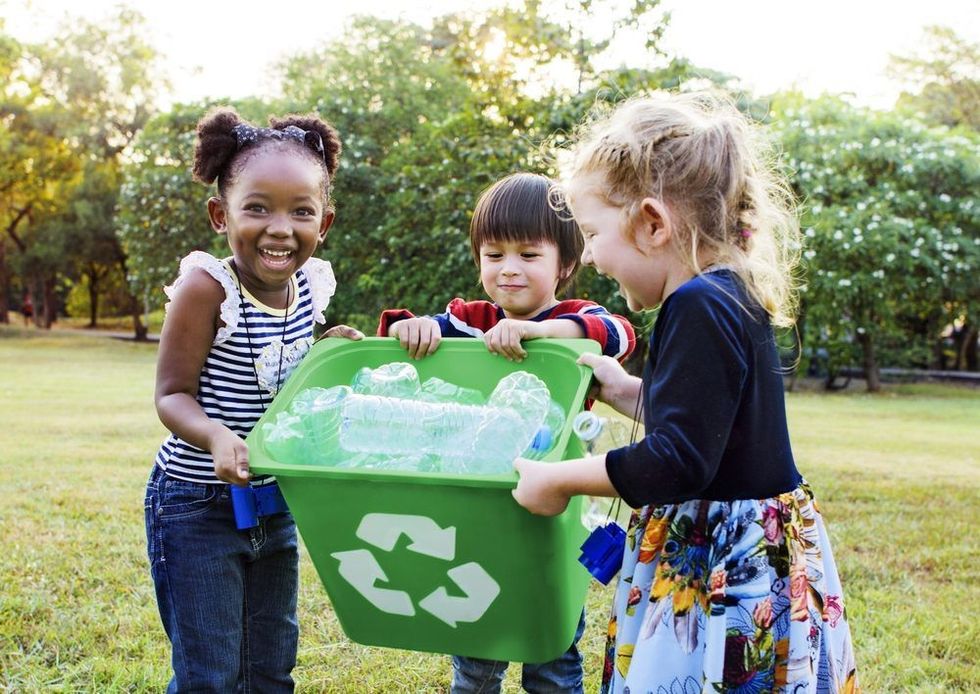
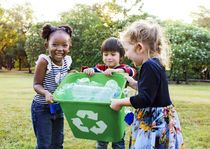
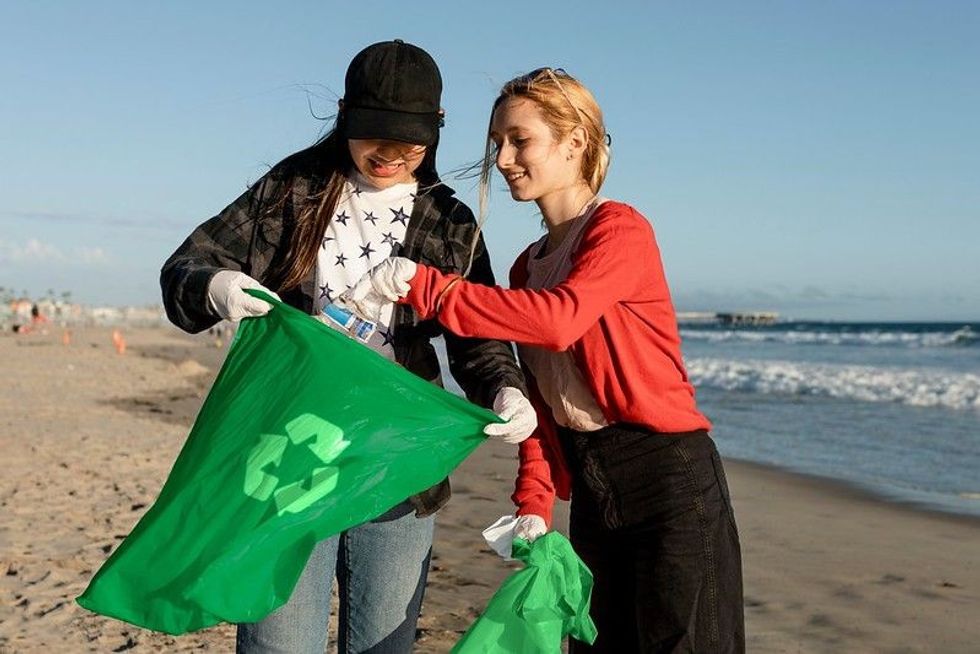
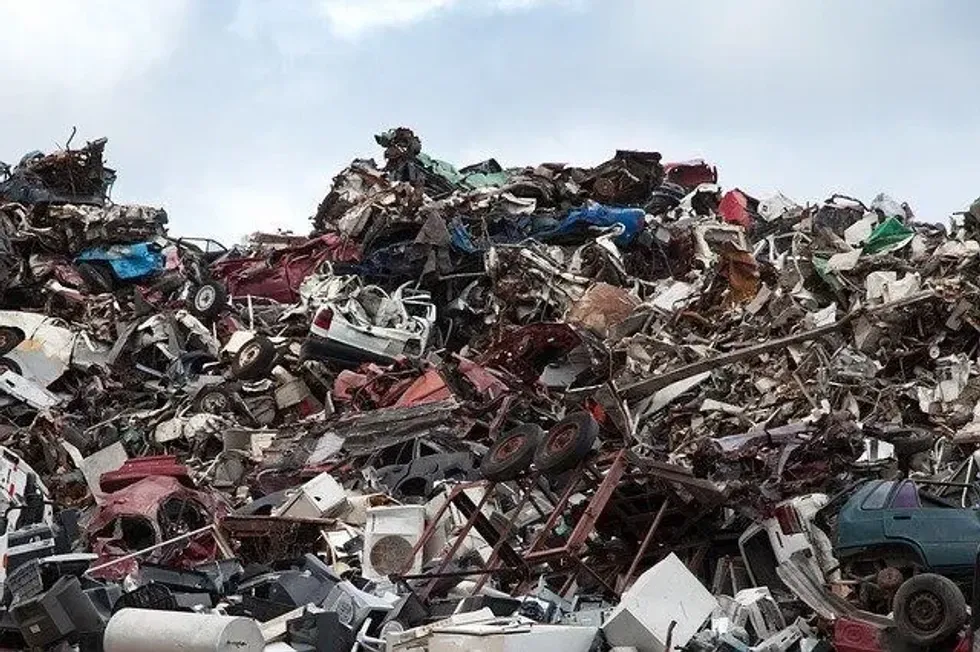
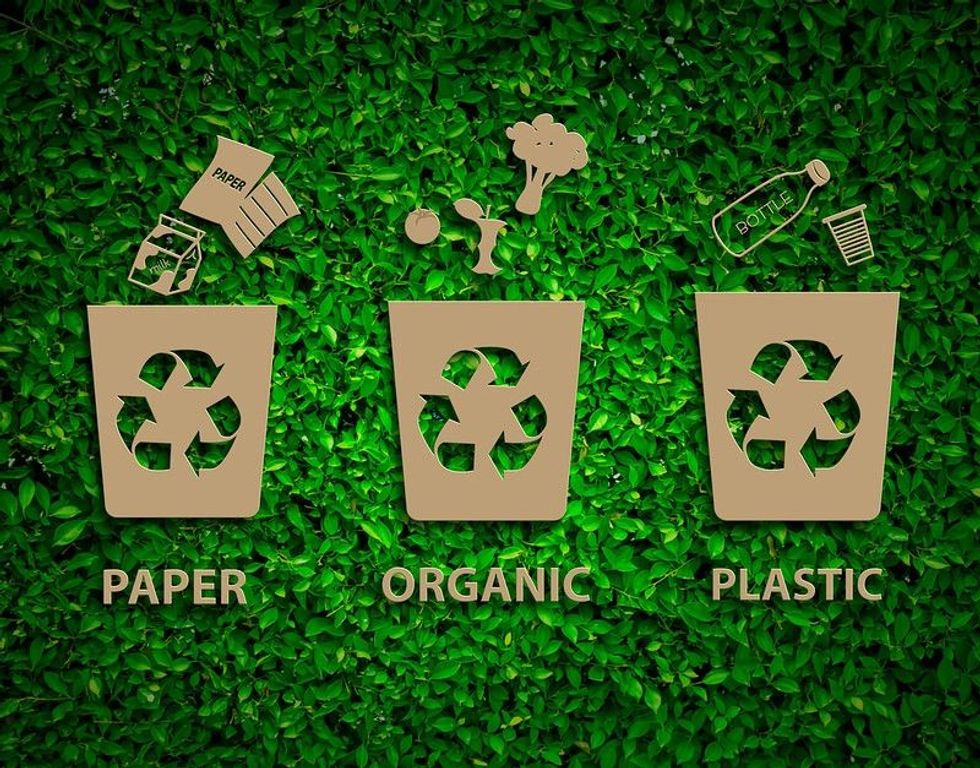
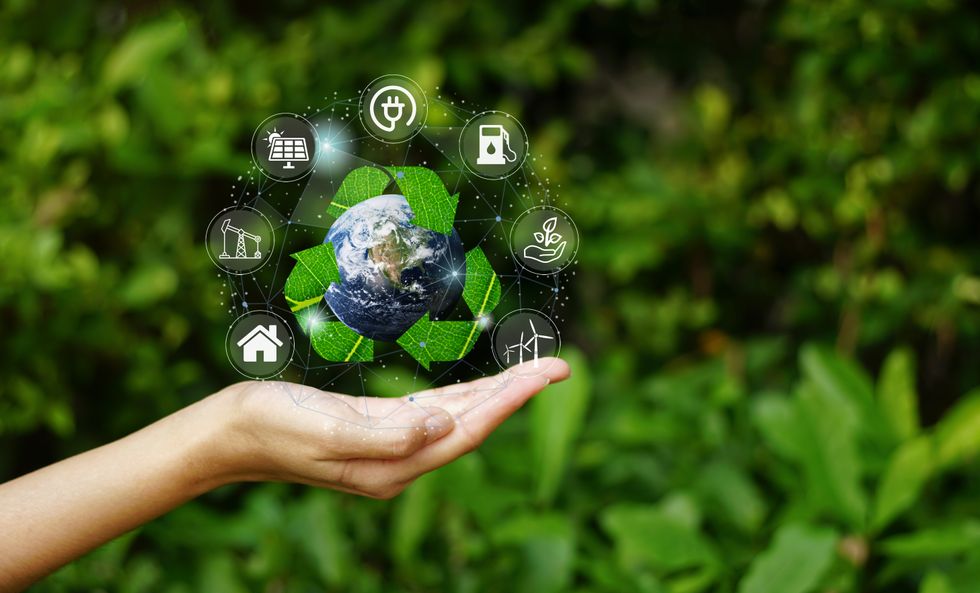 Shutterstock
Shutterstock




